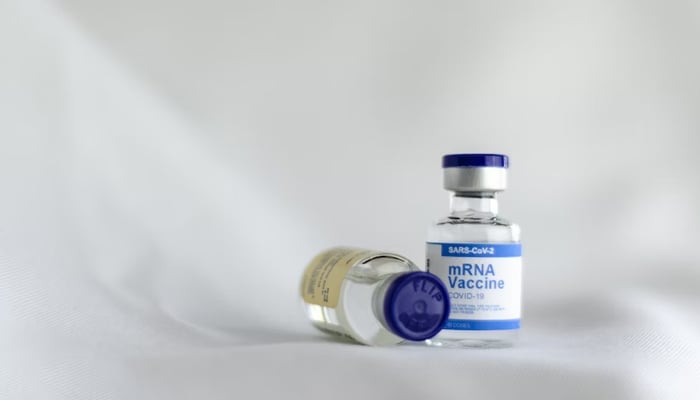Vaccines for cancer, heart diseases will be available by 2030
Efforts of 15 years have been shortened to 12 to 18 months because of the COVID-19 vaccines, experts say
Experts have said that new vaccines aimed to cure heart diseases and autoimmune diseases can potentially save millions of lives around the world.
Additionally, Dr Paul Burton of Medorna also maintains that the firm will be able to offer such treatments for "all sorts of disease areas" in as little as five years, reported Guardian.
Ongoing studies on the subject have been offering promising results as researchers noted that the efforts taking the time of at least 15 years have been shortened to 12 to 18 months. It is all because of the COVID-19 vaccines.
Dr Richard Hackett, CEO of the Coalition for Epidemic Preparedness and Innovations (CEPI) said: "The biggest impact of the pandemic had been the shortening of development timelines for many previously unvalidated vaccine platforms, adding that “It meant that things that might have unspooled over the next decade or even 15 years, were compressed down into a year or a year and a half…"
Medorna had created a promising COVID-19 vaccine and it is further gearing up for cancer vaccines that would target "different types of tumours".
Burton who is the chief medical officer of Moderna said: "We will have that vaccine and it will be highly effective, and it will save many hundreds of thousands if not millions of lives. I think we will be able to offer personalised cancer vaccines against multiple different tumour types to people around the world."
He also noted: "Multiple respiratory infections could be covered by a single injection – allowing vulnerable people to be protected against Covid, flu and respiratory syncytial virus (RSV) – while mRNA therapies could be available for rare diseases for which there are currently no drugs. Therapies based on mRNA work by teaching cells how to make a protein that triggers the body’s immune response against disease."
"I think we will have mRNA-based therapies for rare diseases that were previously undruggable, and I think that 10 years from now, we will be approaching a world where you truly can identify the genetic cause of a disease and, with relative simplicity, go and edit that out and repair it using mRNA-based technology," Burton said.
The proteins in the cell are made by the instructions of mRNA molecules and by injecting their synthetic form, cells can create the proteins required for immunity.
A vaccine based on mRNA would alert the immune system of a patient suffering from the disease. Then the vaccine would attack directly to the diseases without causing any harm to healthy cells.
The process identifies the protein fragments present in cancer cells and then creates mRNA that would direct the body on how to produce protein fragments of their own to fight the disease.
Initially, doctors examine the patient's tumour and sent it to the lab to identify whether there is any genetic mutation in healthy cells which can grow cancer.
After passing it through an artificial intelligence (AI) algorithm, it identifies abnormal cells and also underlines parts of these abnormal proteins which could initiate an immune response. Finally, the mRNAs are manufactured into vaccines.
Burton also stated: "I think what we have learned in recent months is that if you ever thought that mRNA was just for infectious diseases, or just for COVID, the evidence now is that that’s absolutely not the case."
"It can be applied to all sorts of disease areas; we are in cancer, infectious disease, cardiovascular disease, autoimmune diseases, rare disease. We have studies in all of those areas and they have all shown tremendous promise."
Back in January, Moderna released results from a late-stage trial of its experimental mRNA vaccine for RSV which suggested that "it was 83.7% effective at preventing at least two symptoms, such as cough and fever, in adults aged 60 and older."
US Food and Drug Administration (FDA), citing this data granted its vaccine breakthrough therapy designation which means the efforts to market it would be accelerated.
A similar designation to the Medorna vaccine for cancer was also granted by FDA in February after seeing results from patients suffering from skin cancer melanoma.
Burton was of the view that "I think it was an order of magnitude, that the pandemic sped [this technology] up by. It has also allowed us to scale up manufacturing, so we’ve got extremely good at making large amounts of vaccine very quickly."
Pfizer has also been developing an mRNA vaccine for influenza and aimed to develop vaccines for highly infectious diseases.
"The learnings from the COVID-19 vaccine development process have informed our overall approach to mRNA research and development, and how Pfizer conducts [research and development] more broadly. We gained a decade’s worth of scientific knowledge in just one year," a spokesperson from Pfizer said in a statement.
The COVID pandemic also benefited other vaccine methods such as protein-based vaccines made by Novavax.
The jab triggers an immune response by making the body feel like it is attacked by the virus.
President of Research and Development at Novavax Filip Dubovsky noted that "There has been a massive acceleration, not just of traditional vaccine technologies, but also novel ones that hadn’t previously been taken through licensure. Certainly, mRNA falls into that category, as does our vaccine."
However, if a sufficient amount of funding is not provided for the cause, all the efforts of years would be wasted, warned the experts.
Prof Andrew Pollard, director of the Oxford Vaccine Group and chair of the UK's Joint Committee on Vaccination and Immunisation (JCVI), said: "If you take a step back to think about what we are prepared to invest in during peacetime, like having a substantial military for most countries … Pandemics are as much a threat, if not more, than a military threat because we know they are going to happen as a certainty from where we are today. But we're not investing even the amount that it would cost to build one nuclear submarine."
-
Late James Van Der Beek inspires bowel cancer awareness post death
-
Bella Hadid talks about suffering from Lyme disease
-
Gwyneth Paltrow discusses ‘bizarre’ ways of dealing with chronic illness
-
Halsey explains ‘bittersweet’ endometriosis diagnosis
-
NHS warning to staff on ‘discouraging first cousin marriage’: Is it medically justified?
-
Ariana Grande opens up about ‘dark’ PTSD experience
-
Dakota Johnson reveals smoking habits, the leading cause of lung cancer
-
Chris, Liam Hemsworth support their father post Alzheimer’s diagnosis












